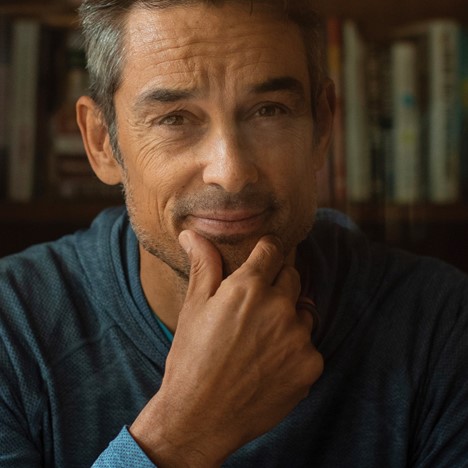featuring Jamie Wheal
Jamie Wheal is one of our most insightful and articulate culture commentators on the present and future of human society. He is the coauthor of the global bestseller Stealing Fire (2018) and more recently Recapture the Rapture: Rethinking God, Sex, and Death in a World That’s Lost Its Mind. He is also the founder of the Flow Genome Project, an organization dedicated to the research and training of human performance. Jamie’s work and ideas are in great demand and have been covered in numerous leading publications.
Note: This is the fifth entry in a series based on contributor chapters in the book How Psychedelics Can Help Save the World: Visionary and Indigenous Voices Speak Out.
~ ~ ~
We’re All Cosmic Orphans
As Jamie describes it in his chapter, the cosmic orphan refers to “a grieving for what is, coupled with a yearning for what could or should be.” Whether or not we’re aware of it, in a sense we’re all cosmic orphans. We’re thrust naked and tiny into a mysterious and overwhelming world and universe that a precious few understand in any depth. Meanwhile, seeking for comfort and certainty, the guardians of the way—parents, school teachers, authorities and influencers both secular and religious—relentlessly pass down and impose their limited and often distorted worldview on first themselves and then on others. Tibetan Buddhist master Chögyam Trungpa called it “mutual group imprisonment.
Quoting Jamie again, “We’re homesick for a place we’ve never seen, but still, somehow, remember.” That remembering can be induced in profound psychedelic experience. It’s been called the “ah hah!” experience, an incontrovertible moment in which one thinks, “Ah, of course. This is home. I’ve always known this.” Maybe you reading this have had that experience. I’ve had it a couple of times on high dose LSD sessions.
Jamie makes reference to the Hebrew notion “that our souls go through three phases of existence” that can point out a way home for us cosmic orphans. “In the pre-tragic phase, everything is safe, womb-like, peaceful.” But it doesn’t last. We’re inevitably hurled into the tragic phase in which we “run smack-dab into the wound of the world, and we feel it as pain, confusion, frustration, or resentment.”
The all-too-common danger at that stage is that “we seek escape, transcendence, soothing . . . we seek to bypass the unsolvable trainwreck of the human experience.” Any careful student of human behaviour can see how impossible that impetus is and how so often it leads to even greater suffering and confusion—and not just for oneself.
So we can’t go back to the womb-like peace we yearn for. Back to Jamie again to describe the only possible way forward for anyone intent on moving through obstacles toward the light. “Rather than trying to claw back our pre-tragic beginnings, we can accelerate forward to the end. We can face death, but on our own terms, and in our own time . . . All ecstatic practices—whether they involve psychedelics, meditation, sex, or extreme sports, are all in their way, death practices. We’d do well to reintegrate them into our lives and traditions. . . Goethe perhaps said it best, ‘He who does not know the secret ‘die and become’ shall remain forever a stranger on this earth.’ “
The Power of Free Will
As Jamie says in his chapter in How Psychedelics Can Help Save the World, if we are able to move ahead and experience this dying and becoming, “we get to choose this existence, without qualification or compromise. . . Once we step off the hamster wheel of seeking pleasure and avoiding pain, and embrace the full catastrophe of the human condition, we unlock a powerful force. . . It’s the power that is unleashed when a human being sets aside their own references and preferences and takes a stand for Goodness.”
Without quoting the whole chapter, it’s not possible to do justice to the full case Jamie makes for encouraging us to “embrace the full catastrophe” and learn how to die and become. So I’ll pass the talking stick back to him as he eloquently closes the chapter.
“We now have the tool kit for a DIY initiation into recapturing our rapture—our bliss, our belonging, our becoming—so that we can rise up, stand up, and lend our voices to how this all goes down. We don’t have to remain cosmic orphans, isolated in our despair, alienated in our grief. We can learn to weep rather than whimper. We can find our brothers and sisters, who can hear the truth in what we say. And we can do it with creativity, courage, and conviction. If we lose our lives (for a moment) we get to fully choose our lives (forever after).
“We can practice resurrection. We can dance each other home.”
Beautiful words to live by. Thank you Jamie.

